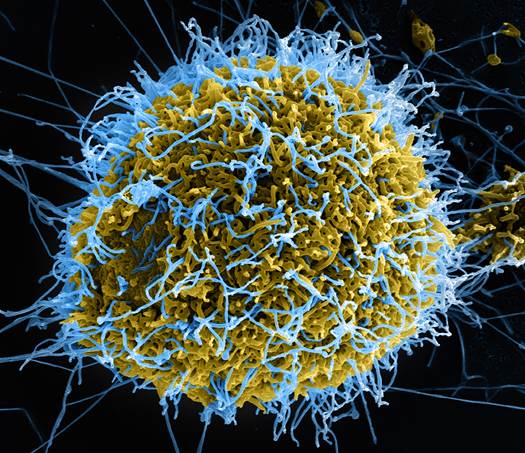
Even as the largest-ever Ebola epidemic winds down, researchers are looking for drugs that can stop Ebola outbreaks in the future. While some scientists are working to develop a vaccine, others are looking to repurpose drugs that are already on the market and could be available to patients more quickly. After testing 2,600 drugs, researchers have found 30 that might help to fight the Ebola virus. The most promising are Vascor, a drug commonly prescribed to treat heart disease, and the antidepressant Zoloft. The results were published today in Science Translational Medicine.

Two months after he was discharged from the hospital after a grueling fight with Ebola, Dr. Ian Crozier was back in the hospital with searing eye pain. When doctors looked closer, they were astounded to find cells of the virus still lingering inside his eye. His case we detailed in a report published yesterday in the New York Times.

A couple days ago, a colleague forwarded an announcement that the World Health Organization was set to declare Liberia “Ebola-free” on May 9 when the country reaches 42 days (double the virus's incubation period) without reporting a new case of Ebola infection. That same night, the movie Jarhead came on TV. The timing was perfect.

On March 20, a woman in Liberia was diagnosed with Ebola. It was a mysterious case, since it happened 30 days after the country's last recorded occurrence of the virus, and Ebola is thought to be contagious for up to 21 days at most. The woman reported no contact with the Ebola virus or anyone from Guinea or Sierra Leone, where outbreaks are still ongoing. She didn't travel anywhere, and she didn't attend any funerals. Her only known link to the disease was having unprotected sex, on March 7, with a man who was hospitalized for Ebola back in October.

During Nigeria's attempts to control the spread of Ebola, officials contact traced nearly 900 people. Ultimately, 20 people fell ill in Nigeria and eight died before the World Health Organization declared the country Ebola-free October 20. Today, New York City—which has one-twentieth the population of Nigeria—is contact tracing 289 people. A recent New York Times article offers a peek into this time-consuming and costly -- but science-proven -- method of containing infectious diseases. The city has not yet had a single case of Ebola transmission.

While attending a conference for tropical-disease experts yesterday in New Orleans, Popular Science contributing editor Brooke Borel found that 30 experts who were planning to be there had ultimately stayed away--because the state of Louisiana asked them to. These 30 folks were healthcare workers and researchers who had been to countries with Ebola epidemics within the last 21 days, the maximum incubation time for Ebola, but did not have symptoms.

If you give a lab mouse the mouse version of Ebola, it will die. But not in the same way humans with Ebola do. Lab mice infected with Ebola don't get hemorrhagic fever. They don't form tiny clots in their blood, like human Ebola sufferers do, even though the genetic sequence of the mouse Ebolavirus differs from human Ebolavirus in only 13 out of its nearly 19,000 DNA letters.















